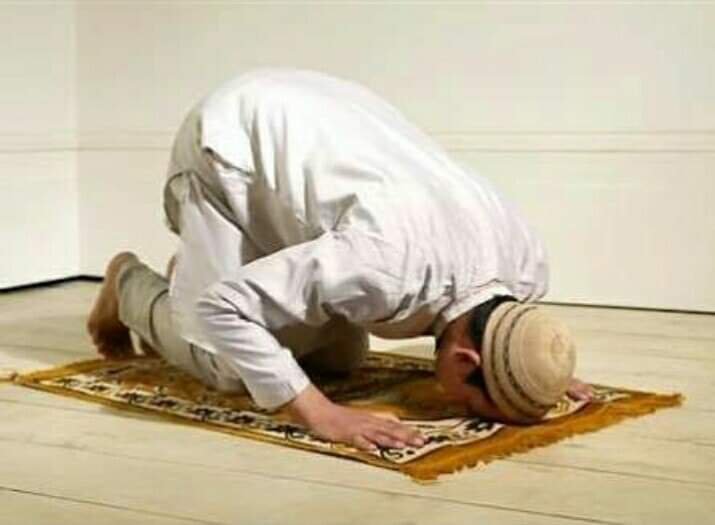different type of prayers in islam
prayers in islam, what is salat in islam, why salat in islam, what are the diffrent types of salat in islam, what are the diffrent types of prayers in islam,

What is Salah?
Salah is the practice of formal worship in Islam. Its importance for Muslims is indicated by its status as one of the Five Pillars of Islam. Salah is a ritual worship, having prescribed conditions, a prescribed procedure, and prescribed times.
Types of Salah (Prayers)
Salah may be classified into four categories of obligation:
1. Fard prayers
Fard prayers are compulsory, non-performance of which renders one a non-Muslim according to the Hanbali Sunni School, for the other Sunni schools it renders one a sinner. The denial of its compulsory status however is agreed upon by all Sunni schools to render the denier outside the fold of Islam.
-
Jumah (Friday) prayers - Attending the special Jumah (Friday prayers), for men at the mosque, and for women to pray at home.
-
Janazah prayers - Attending Janazah (Funeral prayers).
2. Wajib prayers
Some believe that Wajib prayers are compulsory while there are those who believe that since the 5 prayers are obligatory, it automatically renders all other prayers optional.
-
Witr - Witr is performed after the salah of isha'a (dusk). Some Muslims consider witr wajib while others consider it optional. It may contain any odd number of raka'ah from one to eleven according to the different schools of jurisprudence. However, Witr is most commonly offered with three raka'ah.
-
Eid - Eid Salah is performed on the morning of Eid ul-Fitr and Eid ul-Adha. It consists of two raka'at, with seven takbirs offered before the start of the first raka'ah and five before the second. After the Salah is completed, a sermon (khutbah) is offered. However, the khutbah is not an integral part of the Eid Salah. The Eid Salah must be offered between sunrise and true noon i.e. between the time periods for Fajr and Zohr.
3. Sunnah prayers
Sunnah salah are optional and were additional voluntary prayers performed by Prophet Muhammad (pbuh).
-
Before and after the 5 daily prayers - Prophet Muhammad used to pray more rakahs than the minimum prescribed numbers of rakahs for each of the 5 daily prayers, and these are called Sunnah. Prayer is still accepted even if the Sunnah isn't performed, but the Prophet Muhammad used to pray them regularly so it is highly recommended.
-
Istikhaarah - Salah al-Istikhaarah is a prayer performed when a Muslim needs guidance on a particular matter, such as whether they should marry a certain person. In order to perform this salah one should perform a normal two raka'at salah to completion. After completion one should say the du'a which is called Istikhaarah. The intention for the salah should be in ones heart to perform two raka'at of salah followed by Istikhaarah. The salah can be performed at any times where salah is not forbidden.
-
Tahajjud - Tahajjud prayer is performed at night time, and it is recommended that it be performed after first going to sleep for some part of the evening. Muslims believe that the reward is greater for those who do this prayer at a later time. (It is harder to wake up and pray early in the morning, making the person’s effort greater, resulting in a greater reward from God.)
-
Tarawih - Tarawih can be done only during the fasting month of Ramadan. This prayer can be done alone, in a group, at home, or in a mosque or other public meeting area. The total number of raka'ah varies, but with a minimum of eight.
4. Nafl prayers
Nafl salah are optional and regarded as extra prayers which bring more reward. They are usually performed along with the 5 daily prayers, but can be performed at other times as well.
-
Ishraq prayer - The time for the Ishraq prayer beings ten to fifteen minutes after sunrise and consists of two Raka'ahs. Praying ishraq is considered to yield greater rewards than performing the lesser Jihad according to some traditions.
-
Duha prayer - Duha prayer begins after sunrise and ends at meridian, and is generally thought to include at least two raka'ahs, though in some traditions the number is four or even twelve. It is generally prayed when one-fourth of the day has passed. Performing this prayer is believed to be effective in seeking forgiveness for one's sins.
-
Tahiyatul Masjid - Also called "masjidus salam", this is a highly recommended prayer consisting of two Raka'ahs and performed when first entering a mosque. It is considered to be a way of greeting the place of worship in order to draw nearer to Allah.
-
Khawf - The word "Khawf" means fear. Khawf is a type of prayer that is prayed during time of fear. This prayer was performed by Prophet Muhammad in the Battle of Uhud. It is considered to be a substitute for normal prayers while on a battlefield.
-
Journey prayer - When a person is about to travel, and also when they return from traveling, it is considered beneficial to pray two Raka'ahs in a mosque.
What's Your Reaction?





















